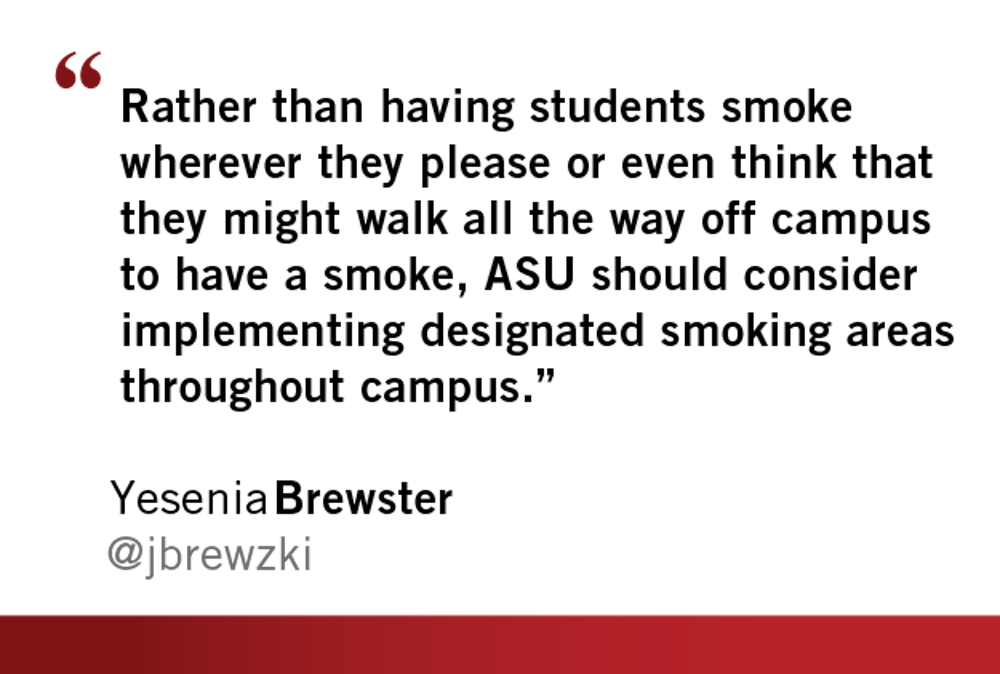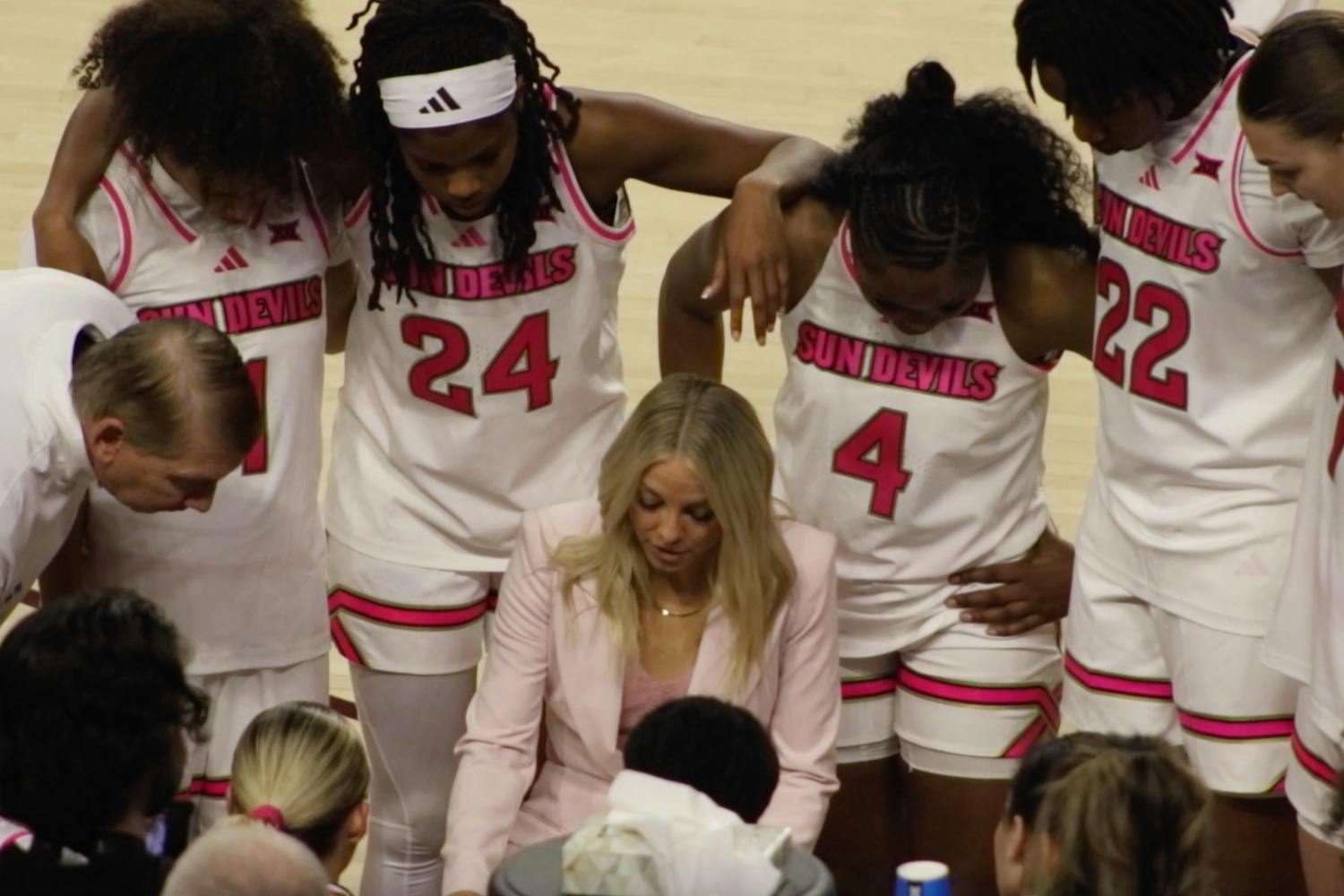On Aug. 1 2013, ASU issued a policy that makes all ASU campuses tobacco-free. Throughout campus, you can see signs reminding students that they can’t smoke any tobacco products — smokeless or otherwise — yet students are still seen smoking.
The policy does not clearly state any repercussions for smoking on campus, so people do it anyway. Still, there are many students who understand the dangers of smoking that motivated the policy and why ASU decided to put it into effect. The policy is mostly peer-enforced, but regardless of the $40 thousand spent on the signs, it is clearly not enough to motivate students to say anything. If one were to walk on campus, they wouldn’t even be able to tell that ASU was a tobacco-free campus if it weren’t for the signs.
Before the implementation of the tobacco-free policy, students walked around campus with a variety of cigarettes, but by no means was there a cloud of secondhand smoke that hovered over the school. In the evenings, residents would sit on blankets on PV Beach and the Barrett Lawn around a hookah socializing and doing homework. It was a common social culture that brought students together. Despite how people feel about tobacco and its dangers, it was a fun activity in which everyone could partake.
Quite frankly, everyone knows the potential dangers of smoking. The surgeon general’s warning is posted on every pack of cigarettes. The choice to smoke is upon the person who is smoking, and though more and more public venues are making the choice to go tobacco-free, many of them create designated smoking areas for their patrons. With no real regulation of the tobacco-free campus, students continue to smoke while others who are uncomfortable often sit idly by.
On the other hand, when smoking students are called-out for their breaking of campus policy, they are put in an uncomfortable position for exercising their legal right to smoke. The tobacco-free campus policy, as good as its intention, doesn’t help any students.
ASU should consider a more proactive attempt to end student smoking rather than simply banning it on campus. Although ASU has created a program called Fork the Smoke through health and wellness, the program is only from Dec. 2, 2014, through March 18, 2015, and it has very limited promotion on campus. Putting more investment and attention to getting students to actually quit smoking would have a longer-lasting benefit to its students than simply telling them they can’t smoke the few hours they are on campus.
In addition, people who smoke aren’t going to just hold off if they are on campus all day. Rather than having students smoke wherever they please or even think that they might walk all the way off campus to have a smoke, ASU should consider implementing designated smoking areas throughout campus. With that, students who do smoke will have a specific place to smoke comfortably without the fear of dirty looks and fake coughs, and students who don’t smoke will know where the smoking areas are located in order to avoid them. Designated smoking areas would allow people to smoke their cigarette, hookah, etc. in a comfortable environment.
Regardless of how one feels about smoking, they really have no right to harass someone who chooses to smoke about their choice. By having a peer-enforced rule on no smoking, it only allows students to harass smokers on campus or simply put both people in an awkward position. The “all or nothing” policy doesn’t successfully help the University or its students in any way.
Reach the columnist at ybrewste@asu.edu or follow @jbrewzki on Twitter.
Editor’s note: The opinions presented in this column are the author’s and do not imply any endorsement from The State Press or its editors.
Want to join the conversation? Send an email to opiniondesk.statepress@gmail.com. Keep letters under 300 words and be sure to include your university affiliation. Anonymity will not be granted.
Like The State Press on Facebook and follow @statepress on Twitter.





